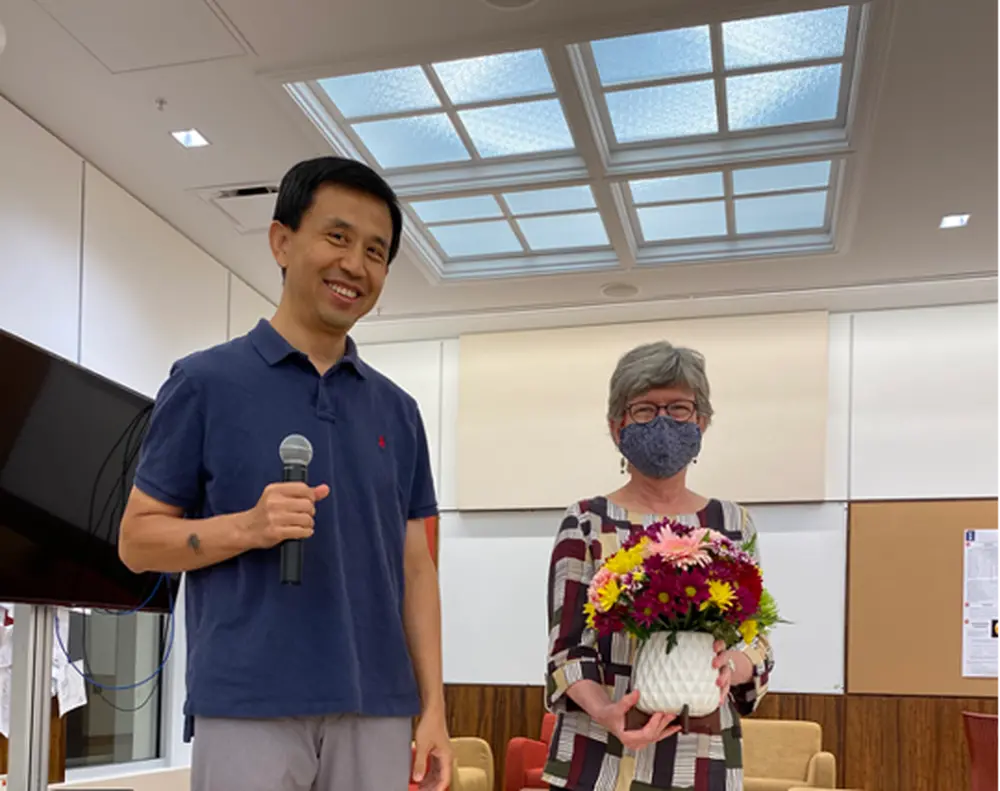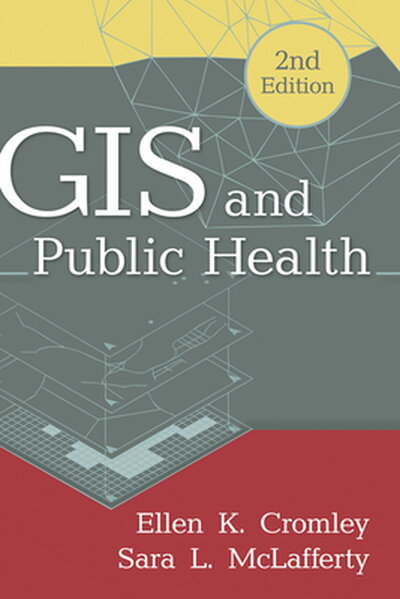
by Sandy Wong (PhD, 2017) and Matt Cohn
Dr. Sara McLafferty has retired from the University of Illinois after a distinguished 20-year tenure. Sara joined the department as a full professor in 2001, served as associate head from 2004-2011, department head from 2012-2017, and director of undergraduate studies from 2019-2021. As head, Sara facilitated many important milestones for the department including the establishment of a Bachelor of Science degree option, the launch of our Professional Science Master’s (PSM) program, and our move from Davenport Hall to the Natural History Building (which required a 4-year layover in the Computing Applications Building).
A global leader in health and medical geography, Sara has dedicated her research and teaching to understanding how the places where we live, work, and play affect our health and well-being. She has single authored, co-authored, and co-edited over 100 publications including peer-reviewed journal articles, books and book chapters, and non-refereed publications that have collectively strengthened the disciplines of geography and geographic information science
Sara’s work highlights inequalities in access to health services, disparities in maternal and infant health outcomes, and wage and commute gaps due to spatial mismatch among marginalized populations in the U.S.; which include women, racialized minorities, immigrants, and people with disabilities.

GIS & Public Health, her book co-authored with Dr. Ellen Cromley in 2003, is widely recognized as the first comprehensive text on how GIS can be used to answer critical public health questions. A second edition was published in 2011 and it continues to serve as an important reference, with nearly 1,300 citations (Google Scholar).
She has received numerous awards for her significant contributions to geographic research, mentorship, and service. Most recently, she was named an American Association of Geographers (AAG) Fellow in 2020 to recognize her critical advancements in health, economic, and urban geography. She also received the Melinda S. Meade Distinguished Scholarship Award from the AAG Health & Medical Geography Specialty Group in 2015.
Sara continues to be an outstanding mentor of students and early career academics from diverse backgrounds, including those who are underrepresented in GIScience. In 2020, she received the University Consortium for Geographic Information Science (UCGIS) Carolyn Merry Mentoring Award. For Sara’s exceptional service to the discipline, she was honored with the Anastasia Van Burkalow Distinguished Service Award by the Department of Geography at Hunter College in 2014, and the Meritorious Service Award by the Society of Women Geographers in 2002.
Sara taught courses on spatial analysis, multivariate geographical statistics, GIS and society, and the geography of healthcare. She was always highly regarded by students and took on the admirable task of regularly updating her course materials to include the latest software and methods. Throughout her career, Sara taught students how to use SPSS, SAS, Stata, ArcGIS, ArcGIS Online, GeoDA, and R Studio, to name a few!
The department hosted a two-day celebration of Sara’s retirement in August 2021, including an online and in-person event. On Thursday, August 12th , Sara's longtime colleagues, current and former PhD advisees, and GGIS faculty and students gathered on Zoom to share their thanks and appreciation of her impact on their own careers and on the discipline of geography. The next day, faculty and students from GGIS and the other SESE departments gathered in person at the Natural History Building for the first time since March 2020 to share gratitude and memories with Sara and present her with a plaque and gifts.
Sara’s plans for the next chapter of life are evolving. She is continuing her research with several papers and projects in the pipeline, and maintains various editorial, advising, and service commitments. She also looks forward to spending more time with family and friends. Even in retirement, Sara’s impact on the geographic community will be felt for years to come.